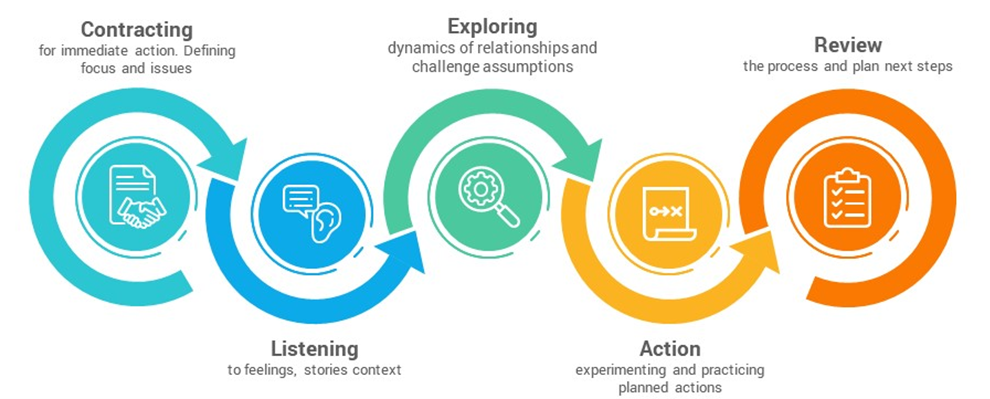
A colleague of mine recently asked me to contribute my views on the future of training. I thought this was a tough assignment, since I have no magic crystal ball to predict the future of anything. But as I thought about the request, several themes kept rolling around my brain.
The future of training will be tied to three key megatrends – the future of work, of technology and of our planet. I will briefly describe each in this post.
Future of Work
The nature of work is undergoing dramatic changes that will change the way people earn a living and develop skills over a career. We are moving from the industrial model of work which has dominated our lives over the past century to a post-modern world of independent freelancing. While our parents and grandparents went to work in mass lock step formation for corporate behemoths which assembled employees by the thousands in towering offices and cavernous factories, our children and grandchildren are more likely to work for themselves in small businesses that they help found or in a gig economy that treats everyone like an independent contractor.
The implications for training and development are profound. Today, most training is paid for by employers who want their people to be more productive on the job. In the future, companies will not make the same investment in independent contractors who may not stay around long enough to pay their employer’s investment back in increased productivity. Instead, freelancers will have to develop themselves to keep their skills sharp and competitive. How that will happen and who will finance adult training and education is an open question at this point in time. Possibilities include government financing of adult training, much the way that public schooling is now financed, or individual training accounts that grant a sum of money that individuals can use to acquire needed training.
Future of Technology
Technology has already dramatically altered the landscape of learning through the rapid introduction of e-learning over the past several decades. Today, nearly half of all adult training is delivered online over the Internet. This is expected to increase, although the classroom will never totally disappear. As technology becomes more pervasive, we will see increased reliance on its accessibility and ubiquity to deliver training just in time to whomever needs it wherever they happen to be. Mobile learning will become second nature, much like Internet searching is today. Need to know how to operate a complex piece of equipment or how to prepare for an upcoming meeting? There will be an App for that and for every other thing that human beings might need to know. Building this online encyclopedia of human knowledge and skill will occupy instructional designers for a very long time, perhaps forever, as new knowledge is created and catalogued on a scale previously unknown in human history.
Future of the Planet
We are living in the era of globalization, where events in one part of the world have ripple effects across the globe. As the world evolves into a single marketplace, national borders will have less significance. Indeed, we are already seeing that transnational corporations have evolved into more powerful institutions than the nation-states who gave them birth. Global brands like Apple and Google already have more money and clout that most national governments and they grow stronger every day. Simultaneously, a backlash against globalization is emerging, led by populist nativists who oppose the growing power of the corporate elites. This struggle will continue for the foreseeable future and the outcome is uncertain, but one thing that is clear is that we will work in an increasingly diverse world that requires cross-cultural skills that do not come naturally to humans. Our instinct is to trust those that are like us and to distrust those that are different. If we cannot overcome our instincts, we are in for more bloodshed and war.
To complicate things further, we are in the process of destroying our planet through pollution and destruction of all other forms of life except ourselves. As the consequences of global warming become more dire, we will be faced with the prospect of learning to live in harmony with nature or seeing our very existence on this planet threatened by mass extinction. I’d like to think that education and training can help us overcome the existential threat to our species, but I’m also pessimistic about our willingness to recognize and confront the future before it consumes us. We tend to have perfect hindsight, but can’t seem to see what is right in front of our noses.
What do you think? Will education and training save us or will we wake up too late to save ourselves and our planet?

